The true story may surprise you?
There are some spectacular homes in Catalonia and there are many properties which are bought for rental as an investment.
Should I buy a property with the Inheritance I have just received?
By Barry Davys
This article is published on: 29th July 2023

If you are coming from a home owning country such as the UK (63% homeowners in 2020)¹ or Romania (a remarkable 92.9% homeowners in 2021)², it is only natural to think of property as a good idea. We may have experienced significant gains on a property and we probably know others who have done so. Most of these cases will be people who have bought their property as a home. We may have also seen the headlines about the “Buy to Let” boom in the UK. Bear in mind the boom was helped by very, very low interest rates which are most unlikely to be repeated.
Now we are seeing headlines such as ‘Lots of us are very anxious’: why Britain’s buy-to-let landlords are selling³. A reminder that like most investment markets the value of your investment can go down as well as up.
Investing in property can be effective. It should be considered like any other investment and not with the bias in our decision making that can come with having been brought up in a home owning country.
Here we help you to view an investment in property in Catalonia with data.
The first item to understand is that there is a property purchase tax of 10% of the purchase price. Other costs, such as lawyers and notary fees, are typically total 2% of the purchase price. This is an assessment of the impact of costs and taxes and what it can do to your investment return.
¹www.gov.uk – Home ownership
²European Union (Euro Stat) Home or Flat – Owning or renting
³Guardian newspaper 24/02/2023
| The true cost of a house for renting in Spain | Return on investment | ||||
|---|---|---|---|---|---|
| % | % | % | |||
| Purchase tax | 10.00 | Annual yield Barcelona | 5.7 | ||
| Lawyers, notary etc | 2.00 | Less | |||
| Property registration fee | 1.5 | Tax at say 33.8% of 5.7% | 1.93 | ||
| IBI (council tax) | 0.6 | ||||
| Landlord insurance | 0.5 | ||||
| Total cost of buying | 13.50 | Community charge | 0.3 | ||
| Furnishings and white goods | 0.75 | Total ongoing costs | 3.33 | ||
| Total Costs | 14.25 | Annual Net Return | 2.37 | ||
| Number of years to recover cost of purchase | Total Costs ➗ Annual Net Return | = | 6.01 |
In summary, total acquisition costs are typically 14.25% of the purchase price. The buyer has to have this amount of cash in addition to any deposit as the mortgage is based on the value of the property.
The rental property rate of return (yield) is shown for Barcelona. Anywhere outside of Barcelona will likely give you a lower rate of return.
Annual net returns after ongoing taxation of property tax (IBI) and income tax (rental income is added to employment income). The example uses a tax rate of 33.8% income tax on your rental but the top rate of income tax in Catalonia has recently risen to 50%.
This means it will take you just over 6 years to cover your costs from rental income.
Of course, with a bit of luck, the property will increase in value. There is an oft repeated mantra that “Oh but the property will increase in value”. It may well do, especially if you keep the property for many years. However, here are some other points to be aware of before buying a rental property for profit.
- You benefit from the increase in value when you sell the property
- Yet the true benefit is only the increase in value above inflation; not the difference in buying price and selling price but only the bit of profit above the revised value caused by inflation
- Capital gains tax is payable on the increase in buy to let property value, even if you are over 65. Inflation is not taken into account by the tax man so you pay tax on the full difference between buying and selling
- Capital gains tax in Catalonia is between 19% and 26%
- Estate agent fees in Catalonia are typically 5% of the sale price
- A further tax is called Plus Valor. Raised by the local council the tax is based on the increase of the value of the land that the property is built on. This applies to freehold properties too
- The property is part of the assessment for Inheritance Tax in Catalonia even if you return to the UK or your home country
Property investment works best when expectations and reality are matched. Knowing realistic figures, based on data, is very important. We hope that this article provides some insight and helps you with your assessment of whether it is right for you.
Are there alternatives? There are and one or two that are very tax efficient. In some cases a combination of property and other investments can work well.
For more information on these elements of investing in property in Catalonia you can book a call with the author Barry Davys. Please use his online system so you can choose a time that is convenient for you for the call. The call can be a video call or a telephone call.
Tax embargo in Spain for incorrect declaration of taxes
By Chris Burke
This article is published on: 10th July 2023
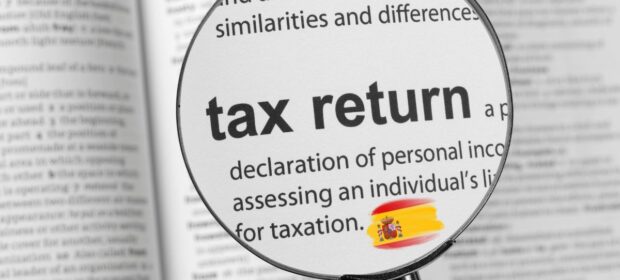
When moving to Spain you find out pretty quickly that the way things work here, bureaucratically and lawfully, are very different from the rest of the Western world, particularly the UK. One such example is if you are suspected of making an incorrect tax declaration or filing. Even if advised by your accountant/tax adviser to do so, you are liable and not them. In Spain, simply put, you are guilty until proven innocent of any suspected wrong doing.
With that in mind, one major example is of a self-employed person having their taxes filed incorrectly by their accountant and being unaware. At some point in the future the individual is notified that they have not responded to the tax office’s request to query this, and thus immediately have their income ‘embargoed’ and the monies they are suspected to owe are either taken from their Spanish bank account and/or taken at source from their main customers/invoices.
In one particular instance the tax office claimed they had ‘written confirmation’ that the notice of their investigation was delivered 3 times, however this confirmation is a signed document from the post office delivery person saying they were delivered, not the recipient signing to say he or she received them. Then, due to you not responding, the case is now closed and you are guilty by not replying, thus the money they believed you owed, you now owe and must be paid.
I have seen this happen many times over the years and cause considerable pain and suffering to people. Imagine the tax office saying you owed them €40,000 then taking it from your bank account, or deducting it each month as you received invoice payments. How do you then pay your bills? And in all of this, you are the complete innocent due to your accountant wrongly declaring your taxes.
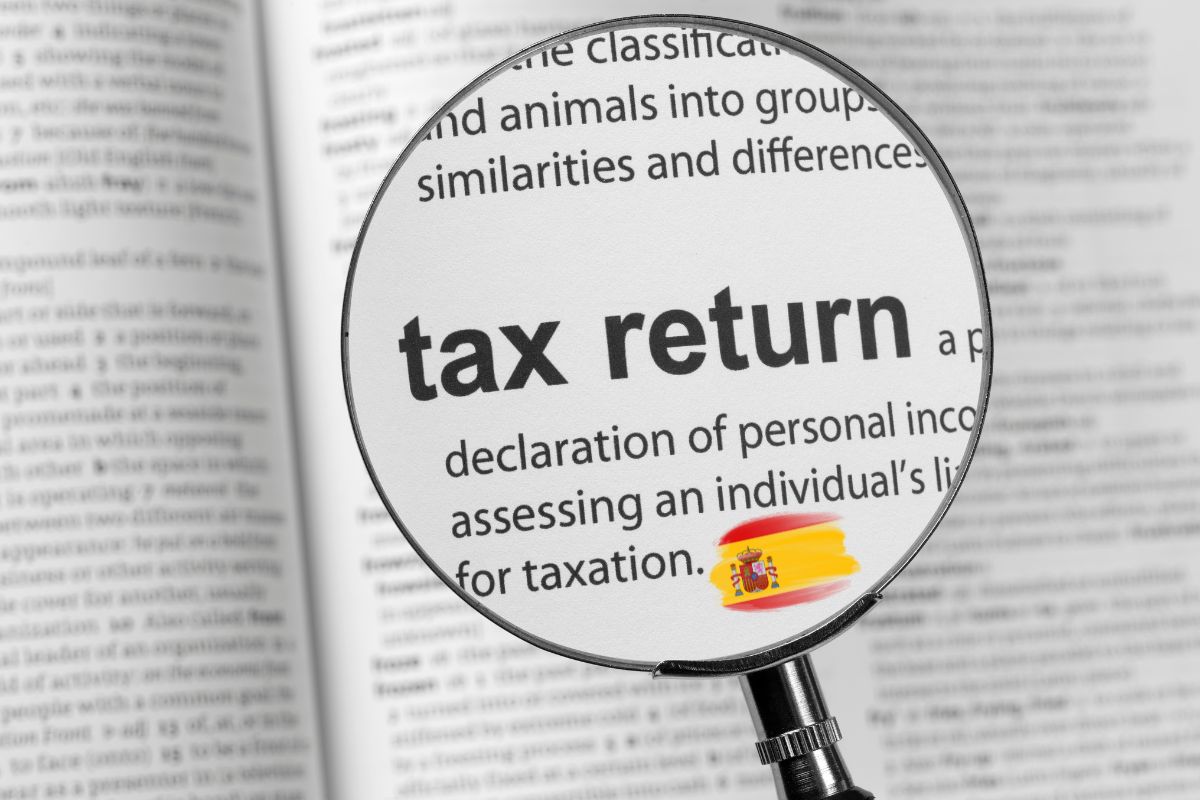
What can you do? Well, the process is threefold:
- Firstly, you have to contest the ruling and see proof of what they are finding you guilty of (e.g., incorrectly filing) and that they actually delivered the documents to you.
- Secondly, if you feel their ruling is incorrect, appeal against it explaining why.
- Thirdly, as the appeal will likely be unsuccessful you then go through an ‘arbitration’ process where your likelihood of winning is approximately 75% and above.
The bad news is this process normally takes between 3-5 years. If you win, you will receive your money back plus some interest. If you lose, the European courts are your last option.
My best advice for anyone to avoid this is:
- Make sure you are confident in the accountant you are using to reduce the chance of this happening.
- Always make sure your address on file at the tax office is up to date.
- Only keep in a Spanish bank account money you need to live on. The tax office cannot legally take money from bank accounts outside of Spain unless they go through a court process.
If this has happened to you feel free to get in touch – I can recommend a law firm/accountant that has experience in this field and has been successful. Alternatively, if you would also like a recommendation for an accountant that won’t make these mistakes (hopefully, in Spain it’s never 100%!) then again feel free to reach out.
Click here to read independent reviews on Chris and his advice.
Reducing Spanish tax
By John Hayward
This article is published on: 27th June 2023

Use a beneficial savings structure
Investing money is often seen as a risky thing to do even though it is generally understood to be necessary. For example, those receiving pension income would not be in the same position if the companies paying the income had left all of the pension contributions in a current account or in a box under the bed.
Financial markets can be volatile (always, I hear you shout). We fully appreciate this. We also acknowledge that inflation has created higher interest rates. Better news if you are a saver but not so pleasant for mortgage payers, or parents having to help their children pay off increased debt.
Let us imagine that, for the foreseeable future, we have high inflation accompanied by higher interest rates. Using an amount of £500,000, I have compared depositing in a savings account with investing in a Spanish compliant investment bond and I have used an interest/growth rate of 4%. I have based my comparison on the bond paying growth to the bondholder’s bank account and using GBP as I cannot see any Euro accounts paying 4%.
– £500,000 at 4% = £20,000
– Using an exchange rate of 1.16 £/€,
– £20,000 = €23,200
The deposit account interest is taxed in full and, at current 2023 rates, is €4,752 each year. This has to be declared in the annual tax return.
The Spanish compliant bond attracts tax on the gain within the withdrawal. I have based the calculation on the same amount being withdrawn i.e., €23,200. In the first year, the taxable gain within this is only €892 and the corresponding tax is €170. The taxable amount within the bond income increases over time but, over 10 years, the tax is:
– €47,520* on the deposit account interest
– €8,381* on the bond income
This gives a tax saving of over €39,000 over 10 years by using the Spanish compliant bond.
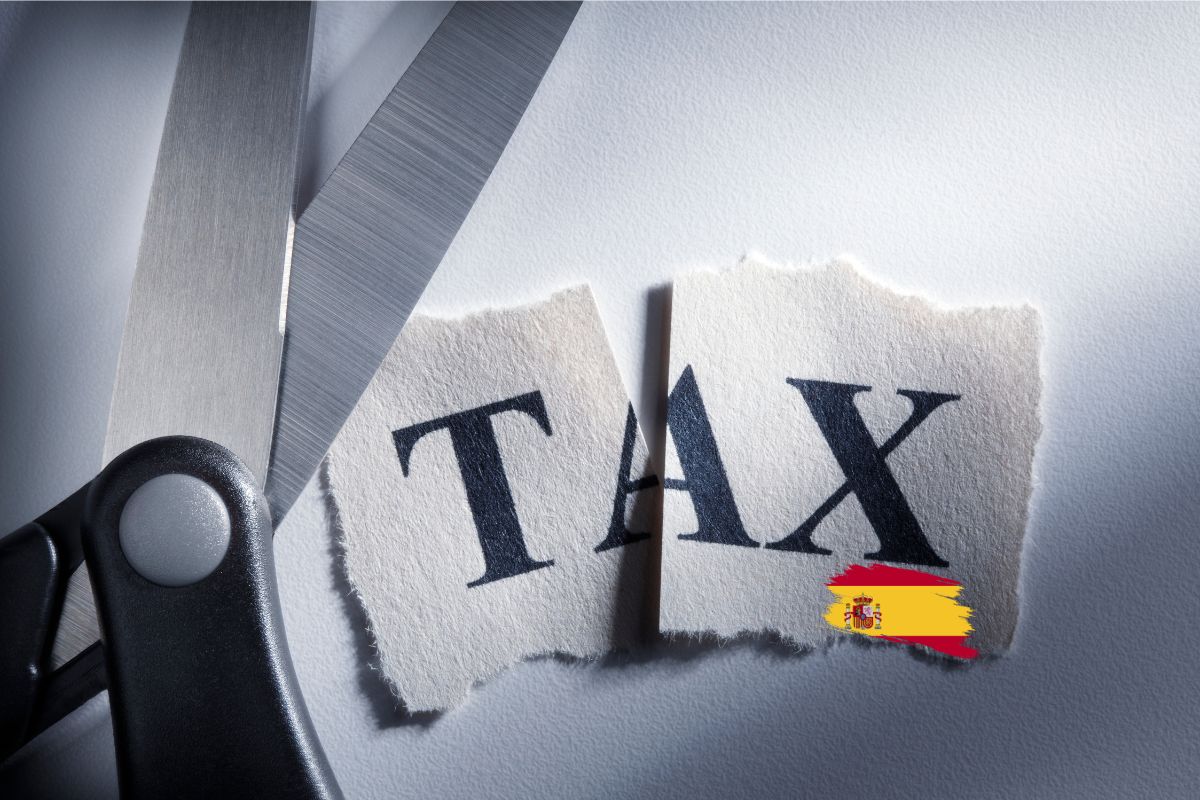
If no money is withdrawn from the bond, no tax is payable whereas the interest on the deposit account will continue to be taxed.
If the bondholder moved back to the UK, and nothing had been withdrawn whilst living in Spain, any growth on the bond whilst resident in Spain would be ignored by the UK tax office.
As an added benefit of reducing taxable income, wealth tax can be reduced. See this Wealth Tax in Spain article.
There can also be inheritance tax benefits with the bond when compared to the deposit account.
Well managed portfolios have consistently outstripped inflation. Conversely, deposit interest rates offered to savers have consistently under-performed inflation over the years.
To find out how we can help you with your existing investments and tax planning, and provide you with ideas for the future, contact me today at john.hayward@spectrum-ifa.com or on +34 618 204 731 (WhatsApp)
* E&OE. The above is a simplified example for illustrative purposes and general guidance only.
Tax tips for living in Spain 2023
By Barry Davys
This article is published on: 3rd April 2023
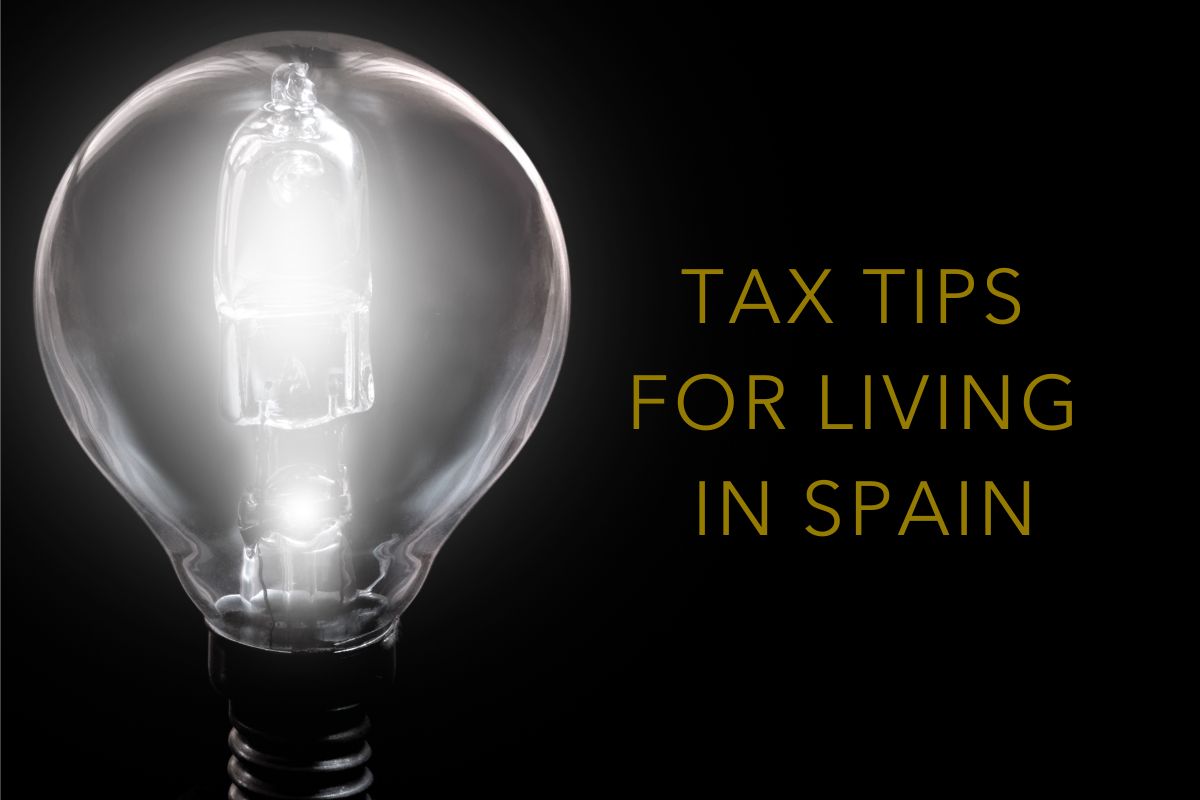
Whether you are thinking of moving to Spain or already living here, tax is a major part of your financial life that needs to be considered and planned for carefully.
1. In the UK, probably the best savings vehicle is an Individual Savings Account (ISA). This is because the income and capital growth is free of income tax and capital gains tax. It is, however, a UK tax scheme and is not recognised in Spain. Selling your ISA whilst you are still a UK tax resident can save you paying tax in Spain both on an ongoing basis and when you sell. There are also options where you can replace the ISA investments with very similar ones in Spain in a tax efficient manner once you have sold your ISA.
2. If you can, take your 25% tax free lump sum from your pension before you come to Spain. Again this is a UK based tax rule and it does not exist in Spain. You may be able to take part of a pension without tax in Spain, but there are rules and conditions. In the UK it is a clear rule and we recommend taking advantage of it. Like the ISA it is possible to reinvest the money with similar investments as you had in your pension on arrival in Spain.
3. You can pay into a UK private pension for up to five years on leaving the UK and continue to receive tax relief on the contributions. You will need to start the pension before you leave the UK. The limit is a maximum of £3,600 per annum but you only pay £2,880. The government will pay your pension company the difference to make it up to £3,600. A husband and wife paying into a pension for five years would qualify for a UK Government “top up” of £7,200. At the end of five years they would have a pension pot of £36,000 which will remain free of income tax and capital gains tax in Spain, until you start taking money from the pot.
4. Do you need to top up your National Insurance Contributions to improve your UK state pension? It is easier to do this before you leave the UK.
5. The sale of a main residence in the UK is free of capital gains tax. In Spain, the rules are different and you may have to pay capital gains tax on the change in value between the purchase price and the selling price of your home. As an example, a £200,000 gain (not at all uncommon if you have had your house for 10 years) could mean a tax bill of £44,800.
6. If you and your family are considering inheritance tax planning, consider making or receiving gifts before you leave the UK. These gifts can be potentially exempt from UK inheritance tax. In Spain, they would be subject to gift tax.

Once you are living in Spain
7. Are you eligible for the “Beckham Law”? This is a law that was introduced to encourage skilled workers to Spain. The tax rate is set at just 24% for your employment income for a period of five complete Spanish tax years. This is the part of the scheme that you will see most heavily promoted.
However, the scheme also allows you to receive capital gains and investment income from outside of Spain without paying Spanish tax. Careful structuring of your affairs can lead to a plethora of planning opportunities. Perhaps the biggest opportunity is selling your UK business and paying 0% tax on the sale. For further information please email barry.davys@spectrum-ifa.com
8. If you are approaching retirement or retiring to Spain, it is possible to save tax on the income you receive by planning the source of your income. As a brief example, pension income is generally taxed as employment income and taxed at your highest rate. Drawing funds from an investment can result in tax as little as 2%. From another source there can be 0% tax. To benefit from this planning it is important to have an adviser who understands your situation and requirements at the same time as having a clear understanding of how investments are taxed in Spain.
9. Different investments attract different tax treatments in Spain in the same way as they do in other countries. There are investments in Spain that are taxed more than others. Try to use the lower tax ones where the investment matches your requirements. You can benefit from many years without paying income tax and capital gains tax.
10. In Spain, inheritance tax is based on taxing the person receiving the inheritance rather than taxing the estate of the person who has died. If inheritance tax is a concern, with the right advice you can build a plan which manages the amount of tax due. The bedrock of the plan should be that you are not left short of money in later life. Your plan should then match your personal requirements. Some planning is simple and straightforward, so it is worthwhile looking at inheritance planning before events overtake you.
11. Are you considering returning to the UK? It is also worthwhile thinking about the possibility of an unplanned return to the UK if one partner were to die, for ill health or ill health of a family member in the UK such as a parent. If a return to the UK is a possibility, make sure you have the type of investment which will not tax you in the UK for the time you have spent in Spain.
Am I tax resident in Spain?
By Barry Davys
This article is published on: 24th January 2023
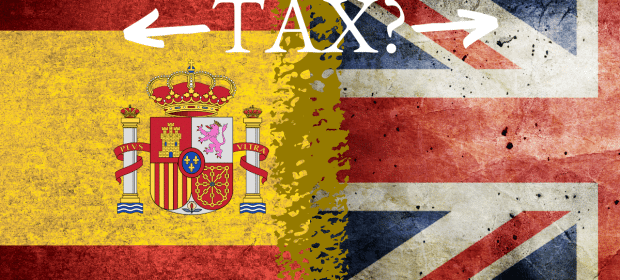
Case Study Spanish Tax Resident Couple
Husband 60, wife 60, married, with 2 children who are financially independent and living in the UK
👉 Pensions: £930k
👉 Investments £60k
👉 Cash Spain €60k
👉 House €1.25 M
👉 Wills – UK & Spain
👉 Cash UK £184k
Challenges
Build Understanding of Pension Situation
- Pensions will break UK Lifetime Allowance Rule even as Spanish Resident
- Difficulty estimating pension as coming from four different pension schemes
- When can I retire
- No overall investment strategy for pensions
- How to minimize tax on pensions
Better returns on Non Pension monies
- Bank accounts earning only 0.15%
Forward Planning including Inheritance tax
- Would Mrs X have enough to maintain property if current pensions provided only 50% pension on husband’s death?
- What would be the Spanish Inheritance tax if one partner died?
- How would this Inheritance tax be paid?
- How is inheritance tax applied in Spain and UK?
- How can the UK and Spanish inheritance tax liability be managed?
What we did
- Completed a full financial review of present financial standing
- Undertook a cash flow forecast to establish if widow’s pension was sufficient, how to pay inheritance tax on first death and how long their money will last
- Provided a Transfer Value Analysis report by our qualified pension expert – a Fellow of the Chartered Insurance Institute
- As a pension was a defined benefit pension, a secondary full report provided by a FCA regulated adviser with full UK pensions permissions in line with UK, FCA rules
- Consolidated pensions to improve tax efficiency, improve widow’s pension and manage in line with their other assets
- Built investment strategy to improve return on their investments and cash
- Clarified how inheritance tax works in Spain and UK and gave an estimate of tax due
- Built an inheritance tax strategy, including sufficient money available to pay tax in Spain on first death
- Minimised Spanish Tax paperwork and liaised with Spanish Tax adviser
- Produced Family inheritance tax strategy document so whole family knew the strategy without disclosing amounts held by the parents
- Wrote to UK HMRC for confirmation that the family home in Spain will qualify for the Main Residence Nil Rate Band
- Identified a UK inheritance Tax saving on a UK life assurance policy
- Carried out regular reviews over 6 years (so far) to update investment and inheritance tax strategies and to adapt to changes to the law
The RESULTS
✅ Clarity for clients and children on Inheritance Tax
✅ Improved return on bank accounts to 3.5% pa giving an improvement of 4,200 pa
✅ Removed pensions from UK Lifetime Allowance rules
✅ By providing documentary evidence from UK HMRC for Main Residence Nil Rate Band confirmed an inheritance tax saving of up to £140,000
✅ Improved widows pension by £7,000 pa
✅ Kept clients compliant with changing tax rules
✅ Answered the financial question “Am I going to be OK?” with a “Yes”
If you are a resident in Spain, or are planning to become a resident and would like any information on tax, pension transfers, investment planning or general financial planning you can contact me on:
barry.davys@spectrum-ifa.com or direct on 0034 645 257 525
More Spanish residents to pay wealth tax
By John Hayward
This article is published on: 19th January 2023
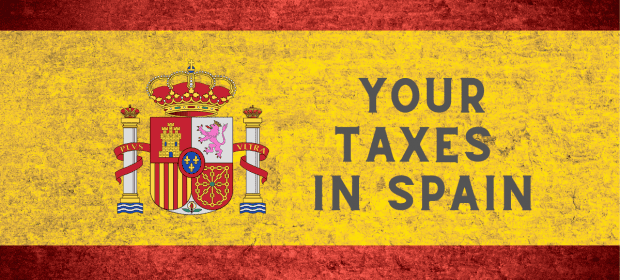
Valencia reduces allowance with more people having to pay
the Impuesto Sobre el Patrimonio
Further to my article from last week, and after consultation with our accountant associates, it appears that the main residence wealth tax allowance of up to €300,000 only applies after 3 years of living in the property (habitual residence). This has been questioned but, as is often the case in Spain, getting a response from the tax office can be tricky.
The tax office words that are relevant in terms of getting around this 3-year rule are “circumstances that necessarily require the change of housing”. Moving to Spain to retire or for a change of lifestyle would not generally tick that box. If there are justifiable health reasons or similar then that appears to be acceptable in terms of applying the allowance.
To emphasise the habitual residence aspect, from JC & A Abogados in Marbella: “Please note that you must live effectively and consecutively in the property for more than 3 years, so you cannot rent the house out even for one day. In addition, you have to impute a benefit in kind for the Spanish property during the same 3 years period.”
In the words of JC & A, “The 3 year period starts counting from the purchase date as long as the dwelling is inhabited effectively and permanently within 12 months as from the purchase date.”
“…..a taxpayer who bought his main home but could not live in it because it was not suitable and had to have some works that exceeded 12 months; the conclusion is that the 3-year period starts counting from the date he moved in and not the purchase date.”
Adding salt to this potential tax wound, whilst it is not treated as your main residence (even though you live there permanently), you have to pay tax on its value as if you were a non-resident.
This all seems rather inequitable but is the law as things stand.
If you would like to discuss managing your money in these volatile and uncertain times, please do not hesitate to contact.
Visit John Hayward of The Spectrum IFA Group or complete the form below.
Spanish Tax on Personal Pensions
By John Hayward
This article is published on: 1st June 2022

Further to the recent article written by my colleague Charles Hutchinson regarding temporary annuities and their taxation of annuities in Spain, I am expanding on the tax treatment of personal pensions generally.
Depending on the type of retirement income that you are receiving, it will either be taxed as regular income, “work” income as the Spanish call it, or savings (passive) income with a different set of tax rates being applying to each type. It is generally understood that the income from pension plans that received tax relief (effectively where the contributions were deducted from income before tax was calculated) will be treated as work income.

The word “annuity” is used in a general sense in the UK as the regular payment which comes from a pension scheme. It is possible to convert a personal pension fund to an annuity, with a view to guaranteeing a fixed income for life albeit waiving the right to the capital value of the pension pot. Whether or not it is advisable to purchase an annuity is another matter. This will depend on personal circumstances.
As far as Spain is concerned, an annuity is a form of income that attracts favourable tax treatment. An annuity in Spain is either temporary or for the whole of life. The annuity is purchased. It is not income drawn from an existing pension fund unless that fund is encashed to buy the annuity. At that point though there is the possibility of a large tax bill on the encashment.
The key points here are that:
- Not all pension income is treated the same way for tax
- Declaring work income as an annuity is not correct and, if reported intentionally in this manner, it is possible that it will be treated as fraud. The Spanish tax office is making a special effort right now to check on this. They can go back at least 4 years with their investigations
- Care should be taken when accessing retirement income to make certain that, not only is it being declared in a lawful way, but also that you do not leave yourself open to a nasty and unexpected tax bill
Contact me today for more information on how we can help you to protect your assets from unnecessary taxation and make more from your money, protecting your income streams against inflation and low interest rates, to talk about Spanish Tax on Personal Pensions or for any other financial and tax planning information contact me at:
john.hayward@spectrum-ifa.com or call (+34) 618 204 731 (WhatsApp).
Spanish Tax Guide 2022
By John Hayward
This article is published on: 24th May 2022

Over the past year or so, with Covid-19 restrictions being lifted and impact of Brexit becoming clearer, we have received many enquiries regarding taxation in Spain, not only from people who are looking to move to Spain but also from those who already live in Spain, in some cases for many years. There are areas of tax that are complex, not helped by the fact that you might receive different opinions on the same tax subject.
In countries such as England, Wales, and the United States of America, there is a Common Law code. Established in England in medieval times, it is based mainly on case law. A decision made many years ago could still apply today. This is a system which has allowed us to get used procedures which have been in place for a long time. This is not necessarily the case in Spain.
Spain, like other countries in Europe, have a Civil Law code. Within this system, rules can be updated regularly. As flexible as this system is, unless you are completely up to date with the latest rules, which may only have been recently altered, it makes it extremely difficult to know how exactly you should be declaring your income and gains in Spain.
Please click on the link below to download our latest Spanish tax guide which is designed to give you a better understanding of the different Spanish taxes, to whom they apply, and when they need to be paid. Spain is made up of autonomous regions and so there can be different rules and tax rates that apply.
However, the general principles are the same or similar throughout the Spain. You will be subject to at least one of these.
- Income Tax
- Inheritance Tax
- Gift Tax
- Wealth Tax
- Capital Gains Tax
If you have any questions, please get in contact. If we do not know the answer to your tax questions, we know someone that does.
Removing Confusion on Spain and UK Tax Situation Especially Pensions
By Barry Davys
This article is published on: 23rd May 2022

It is clear from calls and messages to me from people seeking advice there is much confusion regarding taxation when we live in Spain and have income or capital gains in the UK. Sometimes, these calls happen when people have received a letter from the Agencia Tributaria (Hacienda).
My wish is to clarify the situation so that there are no back taxes, fines nor interest to pay in Spain.
This framework will clarify the position and I include specifics regarding pensions. Tax can be, well taxing, so this framework is to help with understanding the overall situation, not to provide specific advice for your situation.
Who’s this for?
This article is for all British people who live in Spain.
Overview
A framework to help explain how do we pay tax on pensions from the UK when living in Spain?
Why to read this article?
This article is written in response to a very sad situation where a pensioner here has been hit by fines, back tax and interest from four years ago because of a mis-understanding on how to organise his tax on his UK pension. It is likely that further fines will follow for other years. The total amount of fines and interest could amount to €21,000
Your commitment
Taking the time to read the article and requesting an initial telephone or Zoom meeting below, if you want help for your specific situation.
Your Tax Framework
Top of the framework is to understand that when we have taxable events in more than one country, the country of our residency is the “controlling tax authority”. They have the final say on what tax must be paid.
If you live in Spain more than 183 days in a calendar year your controlling tax authority is Spain. It does not matter if you also pay tax in the UK.
How this works is as follows:
- Declare your worldwide gross income and capital gains on our La Renta (M100) Remember it is a self assessment form and so it is our responsibility to do so
- At the end of the La Renta form is a box for entering tax paid in a country with a double taxation agreement with Spain. Put the tax paid in this box or insist your gestor does so. Even post Brexit the double taxation agreement is still in force
- UK pensions gross income all have to be reported in Spain
If you live outside the UK and provide a certificate of tax residency in Spain you can claim dividends, bank interest and even private pensions without paying UK tax (because you will pay tax in Spain).
Pensions, however, are a great source of confusion. The UK retains the right to tax state pensions, military pensions, civil service pensions and a number of others. Previously these did not have to be reported in Spain. They do now!
Tips on pension tax
- On private pensions and most company pensions ask the provider to pay you gross
- If you have a UK pension where it is automatically taxed or is a state pension, record all tax paid in the UK and get proof of payment from the pension provider
- Report the gross figures in Spain
- Your state pension is paid weekly, not 12 monthly so remember to include all payments in the calendar year
- Ensure that any tax paid is listed in the La Renta box for countries with double taxation agreements. Result – no double taxation
- If the tax paid is missed off this box, try to make a Refund of Tax using UK HMRC form R43 and or form R40. It may be possible depending on your circumstances
- One word of warning. Do not use companies offering to reclaim your tax for you. They are expensive, some may be improper and you can easily send the form yourself
In my profession as a financial adviser for international people living in Spain I have a clear understanding of tax rules and recommend that you employ a good local tax adviser. This article is not tax advice as it may not reflect your personal circumstances. It is merely a framework to help with your understanding. I hope this article provides more clarity on the issue and helps when you do go to a tax adviser.
Wealth Tax in Catalonia
By Chris Burke
This article is published on: 7th April 2022

How to reduce it and know how it works
Catalonia is a great place to live for so many reasons. However, like the majority of places in the world, there are taxes to pay too. Although nobody likes to pay taxes, there is a societal need for them. They help fund the public health system, providing care for our families and for ourselves in later life, schools, so our children can receive a formal education and roads, so we can safely and effectively travel. However, in spite of this there are ways in which we can organise our taxes in an efficient manner to ensure that we are paying no more than the amount that we need to pay.
The Wealth Tax (known as ‘El Impuesto de Patrimonio’ in Spanish) is an example of a tax which is an additional tax in Catalonia that many people deem to perhaps be unfair. I mean, why should you pay tax just because you have done well in life, or your parents have and passed this wealth onto you? In summary, it is a tax that you pay on your net wealth (assets owned minus liabilities). The tax is paid on the assets that you hold which fall over a certain threshold. The threshold in Catalonia is €500,000 whilst the threshold throughout the rest of Spain is €700,000. There is a €300,000 exemption for your main residence, meaning that you will not pay tax on your main residence if it is valued under this amount. If your main residence is worth more, you can deduct €300,000 from the valuation and you will only be liable to wealth tax on the excess amount.
Here is a list of the assets that are and aren’t liable to Wealth Tax in Catalonia:
| Assets that Wealth Tax is applicable to |
Assets that Wealth Tax is not applicable to |
| Real estate | Household contents (except for Art) |
| Savings | Shareholdings in family companies |
| Shares | Commercial Assets |
| Cars | Intellectual Property and Pension Rights |
| Boats | |
| Jewellery | |
| Art |
Source: Balcell’s Group
The rate of wealth tax depends on the amount by which you are over the threshold. The general rule is that it ranges from 0.20% to 2.50% in Spain. However, in Catalonia the rate is slightly higher, ranging from 0.21% to 2.75%. You are required to declare your wealth as part of your annual declaration (in Spanish, ‘Declaración de la Renta’) on form 714 at the end of the calendar year, making any payment by 30th June the following year. The below tables display the Wealth Tax rates for Spain as a whole and the variation of the wealth tax to pay depending on the autonomous community (Communidad Autonomo) in which you reside. However, this is an overview to what is a complex calculation, so if you require personalised information, please get in contact with Chris.
| Settlement basis up to (euros) | Fee (Euros) | Other net base up to (euros) | Applicable Rate % |
| 0.00 | 0.00 | 167,129.45 | 0.20% |
| 167,129.45 | 334.26 | 167,123.43 | 0.30% |
| 334,252.88 | 835.63 | 334,246.87 | 0.50% |
| 668,499.75 | 2,506.86 | 668,499.76 | 0.90% |
| 1,336,999.51 | 8,523.36 | 1,336,999.50 | 1.30% |
| 2,673,999.01 | 25,904.35 | 2,673,999.02 | 1.70% |
| 5,347,998.03 | 71,362.33 | 5,347,998.03 | 2.10% |
| 10,695,996.06 | 183,670.29 | Thereafter | 2.50% |
Source: Balcell’s Group
| Autonomous Community | Wealth Tax % Variation |
| Catalonia | Between 0.21% and 2.75% |
| Asturias | Between 0.22% and 3% |
| Region of Murcia | Between 0.24% and 3% |
| Adalusia | Between 0.24% and 3.03% |
| Community of Valencia | Between 0.25% and 3.12% |
| Balearics | Between 0.28% and 3.45% |
| Extremadura | Between 0.30% and 3.75% |
Source: Balcell’s Group
There are ways in which you can mitigate the wealth tax you are required to pay, as noted in the above table, some assets are exempt. Therefore, if you transfer your wealth into these assets then they will not be included as part of your wealth tax calculation. For example, you may not be liable to wealth tax on assets that you transfer to shareholdings in family businesses or certain household or commercial assets.
However, this is not a straightforward process and certain criteria must be met. For example, if you transfer your capital to a ‘family business’, then there are strict regulations on what constitutes a family business, which assets qualify and how you do this. And if you were to utilise your capital to purchase household contents, certain items such as art are not exempt.
Another way to mitigate wealth tax is by relocating. There are a few countries in Europe in which you would not have to pay the wealth tax such as Sweden, Luxembourg, Denmark, Germany and Austria or France. In the UK, they are considering implementing a wealth tax. If you prefer to stay in Spain, then residents of Madrid are exempt from wealth tax so it may be beneficial relocating there.

Finally, you can effectively double your wealth tax exemption threshold by getting married! The wealth tax exemption threshold will then be increased as everyone person is entitled to it. This also counts for the main residence allowance; therefore you may not be liable on wealth tax on your main residence up to €600,000.
Being efficient with your monies/assets from a tax perspective is almost as important as making your money grow. If you would like to seek specialist advice, Chris Burke is able to review your pensions, investments and other assets and evaluate your current tax liabilities, with the potential to make them more tax effective moving forward. If you would like to find out more or to talk through your situation and receive expert, factual advice, don’t hesitate to get in touch with Chris via the form below, or make a direct virtual appointment here.
Disclaimer: Spectrum IFA do not provide tax, legal or accounting advice. This material has been prepared for informational purposes only, and is not intended to provide, and should not be relied on for, tax, legal or accounting advice. You should consult your own tax, legal and accounting advisors before engaging in any transaction.

